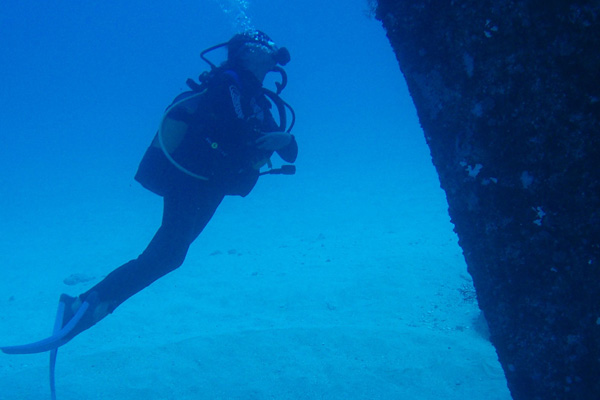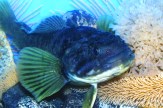Marine researcher sticks to her roots

As a teenager, Jennifer Elliott read about a conservation project to save the rare endemic birds of her homeland of Mauritius, a small island located in the Indian Ocean. “I was immediately intrigued by this project and wanted to meet the scientists in charge to learn more,” Elliott said. “I wanted to help.”
When she graduated from high school, Elliott turned her words into action, volunteering in the captive breeding center at the nonprofit Mauritian Wildlife Foundation. She looked after pink pigeons and echo parakeets—the numbers of which had been declining in recent years due to loss of natural habitats and the introduction of invasive species. Eventually Elliott and her coworkers released the birds back in the wild to boost the local population.
Now a doctoral candidate in the lab of professor Mark Patterson at Northeastern’s Marine Science Center, Elliott is continuing her quest to preserve the Mauritian environment.
After volunteering at MWF, she began working at Reef Conservation, a nonprofit that specializes in marine conservation and education—and helped Elliott find her calling.
“While working for Reef, I got a better understanding of how various anthropogenic activities were negatively impacting the coral reefs of Mauritius,” she said. “For example, the water quality has degraded in several places—it is now cloudy when it used to be very clear.”
The ocean is typically a very nutrient poor environment, she explained, and corals have learned through eons of evolution to thrive in this state. Through their symbiotic relationship with a microscopic alga, corals use photosynthesis to obtain energy, Elliott said. Corals can also obtain energy by eating zooplankton.
Pollutants from land often reach the ocean after heavy rains and excess fertilizers can sometimes cause algal blooms. Both spell bad news for the corals and other marine organisms living in the coastal zones.
Elliott’s research aligns with Northeastern’s focus on solving global challenges in sustainability and is part of the MSC’s broader effort to examine the interconnected systems at play in urban coastal communities, including global coasts as far away as that of Mauritius.
Still working in collaboration with Reef Conservation, Elliott is now pursuing research to determine the best ways for the Mauritian government to preserve one of its most important industries. “Sugarcane used to be our main cash crop,” Elliott said, “but now the tourism industry is our major economic pillar.” And the tourism industry depends, in part, on a healthy coral reef.
One way to rehabilitate coral reefs is to grow corals in a nursery and then transplant them back onto the reef. For her dissertation, Elliott is investigating whether providing corals with extra food in the form of zooplankton would help the corals grow faster in the nursery.
If it does, it would help the local government maintain a continuous supply of fragments that could be used to rehabilitate the reefs. But her initial results show that the type of dried food that she used did not increase coral growth significantly.
While her results are still preliminary, and there’s still much work to be done before her dissertation is complete, information like this can be of significant use in developing effective conservation efforts.





